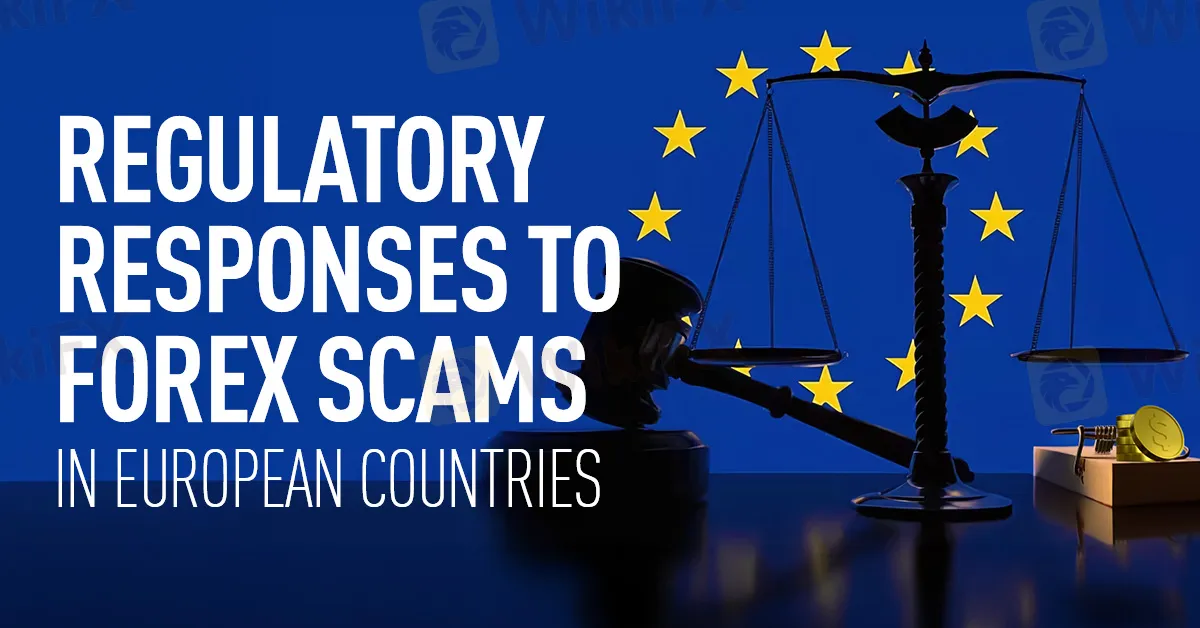简体中文
繁體中文
English
Pусский
日本語
ภาษาไทย
Tiếng Việt
Bahasa Indonesia
Español
हिन्दी
Filippiiniläinen
Français
Deutsch
Português
Türkçe
한국어
العربية
Regulatory Responses to Forex Scams in European Countries
Abstract:As forex investment scams continue to plague Europe, regulatory bodies in various countries are working tirelessly to devise and implement strategies aimed at safeguarding investors. In this article, we explore the diverse regulatory responses to forex scams in European countries, examining the effectiveness of these measures and the challenges faced by regulatory authorities in curbing fraudulent activities.

As forex investment scams continue to plague Europe, regulatory bodies in various countries are working tirelessly to devise and implement strategies aimed at safeguarding investors. In this article, we explore the diverse regulatory responses to forex scams in European countries, examining the effectiveness of these measures and the challenges faced by regulatory authorities in curbing fraudulent activities.
The forex market, by its very nature, operates globally, presenting a unique set of challenges for regulatory bodies. European countries have recognized the need for a coordinated effort to combat cross-border scams, leading to the establishment of regulatory frameworks that aim to protect investors from unscrupulous practices.
One common response among European countries has been the imposition of stringent regulations on forex brokers. Regulatory bodies are tightening their grip on licensing requirements, capital adequacy standards, and conduct regulations for brokers operating within their jurisdictions. By setting higher standards, authorities seek to ensure that only reputable and financially stable brokers can operate, minimizing the risk of fraud.
Collaboration between European countries has become increasingly crucial in the fight against cross-border scams. Authorities are actively sharing information and coordinating efforts to track down and prosecute individuals or entities that engage in fraudulent activities across multiple jurisdictions. This collaborative approach enhances the effectiveness of regulatory actions and serves as a deterrent to potential scammers.
However, challenges persist. The borderless nature of the internet allows scammers to easily sidestep regulatory measures, making it challenging for authorities to enforce regulations consistently. The speed at which fraudulent entities can adapt to changes in regulations also poses a constant threat, requiring regulatory bodies to remain agile in their responses.
One beacon of support for investors navigating the regulatory landscape is WikiFX, a platform dedicated to providing comprehensive information about forex brokers and their regulatory status. By offering a centralized database of broker profiles, WikiFX empowers investors to make informed decisions about the legitimacy and reliability of brokers. Users can access real-time updates on regulatory changes and stay abreast of developments that may impact their investments.
WikiFX serves as a valuable resource for investors seeking clarity on the regulatory environment in European countries and beyond. The platform's commitment to transparency aligns with the objectives of regulatory bodies, providing an additional layer of protection for investors against fraudulent activities.
For investors navigating the regulatory landscape, staying informed is crucial. WikiFX not only provides a wealth of information about brokers but also offers educational resources to enhance users' understanding of regulatory frameworks and how they can contribute to a safer trading environment.
In conclusion, the regulatory responses to forex scams in European countries reflect a concerted effort to protect investors and maintain the integrity of the forex market. While challenges persist, collaborative initiatives and technological tools, such as those offered by WikiFX, are instrumental in empowering investors and bolstering regulatory efforts. As the battle against forex scams continues, a combination of vigilance, education, and effective regulatory measures is key to ensuring a safer trading environment for all.

Disclaimer:
The views in this article only represent the author's personal views, and do not constitute investment advice on this platform. This platform does not guarantee the accuracy, completeness and timeliness of the information in the article, and will not be liable for any loss caused by the use of or reliance on the information in the article.
Read more

Couple Arrested in Thailand for Billion-Baht Crypto Scam & International Kidnapping
Thai authorities have announced the arrest of 27-year-old Chinese national Wu Di, who is believed to be at the centre of a large-scale cryptocurrency investment scam that has defrauded victims of over 600 million baht (approximately US$17.7 million) within a span of just two months.

Fake Website Forex Scam, Arrests Two for Duping 100+ Investors
Chennai Cyber Crime exposes forex trading scam, arrests two men for cheating 100+ investors via fake websites. Beware of fraudulent investment schemes.

Africa Cybercrime Bust: Over 300 Arrested in Fraud Crackdown
Operation Red Card sees 306 arrests across seven African nations, dismantling major cybercrime networks involved in banking fraud, scams, and phishing.

The Growing Threat of Fake Emails and Phishing Scams
Fake emails and phishing scams are on the rise in crypto, targeting users with fraudulent wallet setup instructions. Stay vigilant and protect your assets.
WikiFX Broker
Latest News
Why Are Financial Firms Adopting Stablecoins to Enhance Services and Stability?
Experienced Forex Traders Usually Do This Before Making a Lot of Money
Octa vs XM:Face-Off: A Detailed Comparison
When High Returns Go Wrong: How a Finance Manager Lost RM364,000
Bridging Trust, Exploring Best—WikiEXPO Hong Kong 2025 Wraps Up Spectacularly
Fidelity Investments Explores Stablecoin Innovation in Digital Assets Sector
Interactive Brokers Expands Crypto Trading with Solana, XRP, Cardano, and Dogecoin
SEC Ends Crypto.com Probe, No Action Taken by Regulator
Why More People Are Trading Online Today?
Gold Surges to New Highs – Is It Time to Buy?
Currency Calculator







